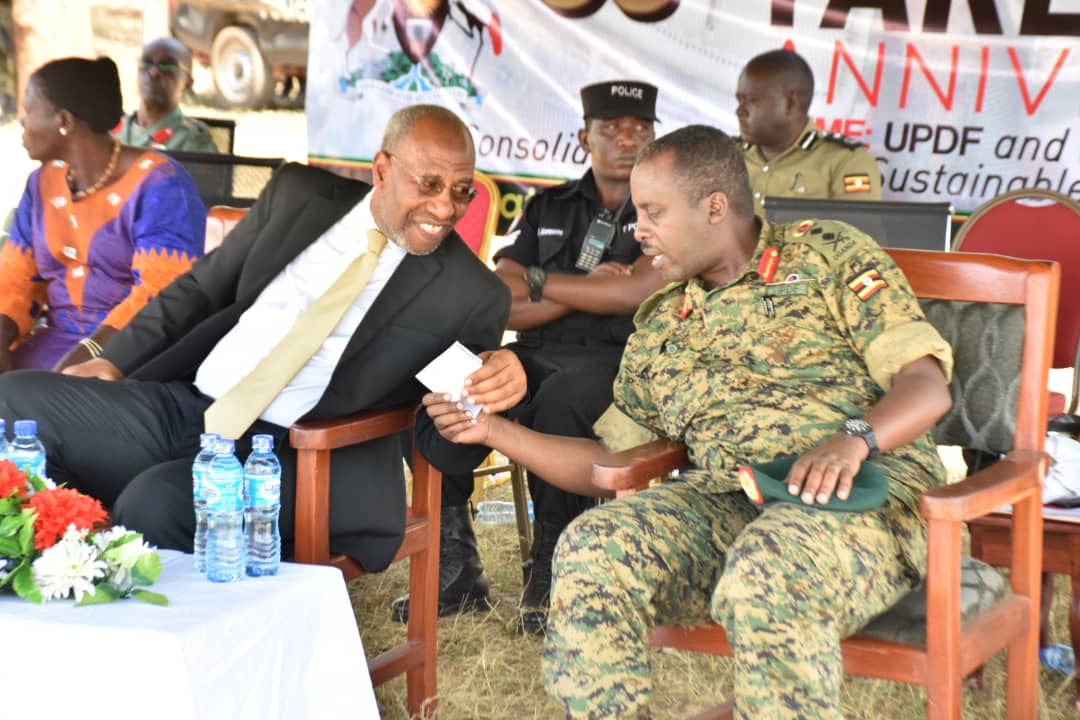Rwanda has come under intense fire after a trove of evidence has pinned the country of carrying out espionage on high-ranking political figures and diplomats in neighbouring countries including Uganda as well as lawyers and journalists among others.
The evidence show, President Paul Kagame administration used an Israeli made malware Pegasus, to spy on opponents, journalists, lawyers and politicians in a number of countries, according to an investigation by The Washington Post, The Guardian, Le Monde and other outlets, based on a leaked list of 50,000 phone numbers.
Numbers of Uganda officials including former Chief of Defence Forces Gen David Muhoozi, former Foreign Affairs Minister Sam Kutesa and former Premier Dr Ruhakana Rugunda appeared on the leaked records, “indicating that they were potential targets of the software”, the inquiry said.
Also targeted was External security boss, Joseph Ochwet.
According a group of investigative journalists who conducted the research, “The selections (of numbers to spy on) coincided with a visit by Kagame to Uganda.”
When Pegasus is implanted on a device, it effectively gives an attacker complete access to the target’s phone.
It can read messages and passwords, access social media, use GPS to locate the target, listen to the target’s conversations, and even record them.
End-to-end encryption, available through popular apps like Signal, does not protect against Pegasus once the phone is compromised.
Even the stringent security systems of iPhones do not stop Pegasus.
The hacker can as well turn on your GPS to know your location, simplifying assassination missions.
In addition, if you are at home, your phone cameras can be remotely turned on, allowing the hacker to even see your children at home playing in the living room.
That’s how dangerously intrusive Pegasus is.
The development comes against the backdrop of President Museveni’s warning to Rwanda over espionage.
Shortly after winning the 2021 general elections, President Museveni warned a “country in the region” against meddling in Uganda’s internal affairs.
“There is a country in the region which has been sending agents to come meddle in our politics,” said Museveni, adding, “But we have been counteracting them,” he added.
Museveni did not mention the country but it is understood he was referring to Rwanda.
Rwanda denies anyway wrongdoing
Dr. Vincent Biruta, Rwanda’s Minister of Foreign Affairs and International Cooperation, said Rwanda does not use or have access to Pegasus.
He dismissed the hacking of opponents’ phones and the potential targeting of activists, journalists, lawyers, politicians, and others as “false accusations.”
Rwandan administration also denied conducting espionage activities in Uganda but Ugandan officials say it’s these acts that continue to undermine Uganda’s relations with Rwanda.
The quantity and nature of the hacked conversations of top Ugandan officials remains unclear.
Defence spokesperson Brig Flavia Byekwaso said security would make an official statement after reading the report.
The earlier tension between the two neighbouring countries was defused following a meeting between President Museveni and his Rwanda counterpart Paul Kagame in 2019.
However, reliable sources say that following the meeting, diplomatic relations worsened since the two countries reneged on their earlier commitments as arrests and deportation of Rwandans by Uganda have increased ever since.
Since March, Ugandan authorities, especially in the border districts of Kabale, Kisoro and Kagadi have arrested several Rwandan nationals and deported them back to Rwanda.
Rwanda also accuses Uganda immigration officials of confiscating identity cards of Rwandese travelling to Uganda.
Kigali accuses Kampala of backing Rwandan dissidents seeking to destabilise Rwanda while Uganda, on the other hand, intensified its crackdown on Rwandans it says are on espionage missions in Uganda.




